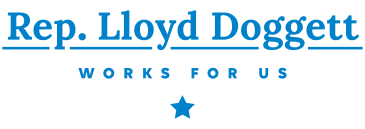Nearly two years after a financial crisis triggered the worst recession since the Great Depression, the Senate approved bold and controversial legislation aimed at preventing a repeat and set the stage for a showdown over the issue in this fall’s midterm elections.
The 60-39 vote Thursday was a major victory for President Barack Obama and Democratic leaders and marked the second landmark overhaul — the first was health care reform — that the Obama administration has pushed through Congress this year.
Obama is expected to sign the financial overhaul bill next week in an elaborate ceremony touting it as evidence that Democrats are standing up for Main Street against the powerful financial industry and its Republican allies.
Supporters said it gives the government desperately needed tools to avoid future corporate bailouts and prevent financial companies from gouging consumers on mortgages and other financial products.
“Because of this reform, the American people will never again be asked to foot the bill for Wall Street’s mistakes,” Obama said. “There will be no more taxpayer-funded bailouts, period.”
The law will give the government new powers to break up companies that threaten the economy, create a new agency to guard consumers in their financial transactions and shine a light into shadowy financial markets that escaped the oversight of regulators. The vote came on the same day that Goldman Sachs & Co. agreed to pay a record $550 million to settle charges that it misled buyers of mortgage-related investments.
From storefront payday lenders to the biggest banking and investment houses on Wall Street, few players in the financial world are immune to the bill’s reach. Consumer and investor transactions, whether simple debit card swipes or the most complex securities trades, face new safeguards or restrictions.
A powerful council of regulators would be on the lookout for risks across the finance system. Large, failing financial institutions would be liquidated and the costs assessed on their surviving peers. The Federal Reserve is getting new powers while falling under greater congressional scrutiny.
The bill would create a Consumer Financial Protection Bureau empowered to write and enforce regulations on mortgages, credit cards and other financial products. Lenders face new restrictions on the type of mortgages they write and couldn’t be rewarded for steering borrowers to higher-cost loans.
Borrowers are to be protected from hidden fees and abusive terms, but they will have to provide evidence that they can repay their loans, thus halting the no-document loans that had flooded the markets.
The sweeping, 2,300-page legislation might carry political risks for Democrats, who hope to build this fall’s midterm election campaign on their tough crackdown on Wall Street.
Just as with health care reform, Republicans have portrayed the financial overhaul as a dangerous intrusion of big government into the lives of average Americans.
Rather than ending bailouts, Republican opponents charge the government’s new power to dismantle large financial companies on the brink of collapse would lead to more bailouts at taxpayer expense.
Only three Republicans — Sens. Scott Brown of Massachusetts and Susan Collins and Olympia Snowe, both of Maine — voted for the bill. They provided the pivotal votes needed to reach the 60 senators required to cut off debate in a key procedural vote earlier Thursday, overcoming a threatened GOP filibuster.
One Democrat, Sen. Russ Feingold of Wisconsin, voted against the legislation, saying it wasn’t tough enough on the financial industry.
Sen. John Cornyn, R-Texas, said, “The Dodd-Frank bill fails to address the root cause of our current economic crisis and does not include many reforms needed to prevent another financial crisis.” He and Sen. Kay Bailey Hutchison, R-Texas, voted against it.
But Rep. Lloyd Doggett, D-Austin, praised the Senate passage of the bill, which was already approved by the House. “Today represents significant progress in putting power back in the hands of Central Texas families and in preventing bank bailouts that I have consistently opposed,” he said.
Even before the bill passed Thursday, House Minority Leader John Boehner, R-Ohio, called for its repeal.
“I think it’s going to make credit harder for the American people to get, clearly harder for businesses to get,” Boehner said.
The legislation will reverse three decades of deregulation throughout the financial system, which many experts say set the stage for the financial crisis in 2008.
To prevent a repeat, the bill enacts the most sweeping clampdown on the industry since the creation of the Securities and Exchange Commission and the Federal Deposit Insurance Corp. in the 1930s.
To help pay the $19 billion cost of the legislation’s expanded regulation over the next 10 years, the legislation immediately ends any additional expenditures from the controversial $700 billion Troubled Asset Relief Program bailout fund. TARP was to expire in October.
Senate Banking Committee Chairman Christopher Dodd, D-Conn., said the legislation can’t fix the fallout from the recent crisis but aims to give regulators the ability to prevent another one.
“I regret I cannot give you your job back, put retirement money back in your account,” he said. “What I can do is see to it that we never, ever again have to go through what this nation has been through.”
The legislation is called the Dodd-Frank bill after him and House Financial Services Committee Chairman Barney Frank, D-Mass., who were the lead sponsors. Once it is signed into law, regulatory agencies will begin writing thousands of specific new regulations and conducting dozens of studies.
Republicans have portrayed themselves as the protectors of Main Street, particularly small businesses that they said would be harmed by new consumer protections and would lose access to credit from banks squeezed by the legislation.
“It’s just this kind of uncertainty that will deter lending and freeze up credit,” said Senate Minority Leader Mitch McConnell, R-Ky., who complained the legislation will create a “vast new unaccountable bureaucracy” that will impose onerous new regulations on struggling businesses.
But Senate Majority Leader Harry Reid, D-Nev., said the legislation would crack down on risky Wall Street practices that helped trigger the recession. And voters, particularly in hard-hit states such as his, will reward Democrats for making the reforms, he said.
“This is going to be a tremendous plus in the elections,” Reid said.
Originally published by The Associated Press.


